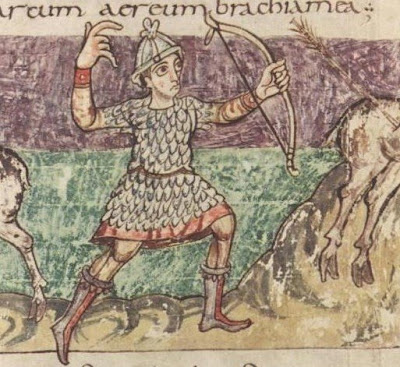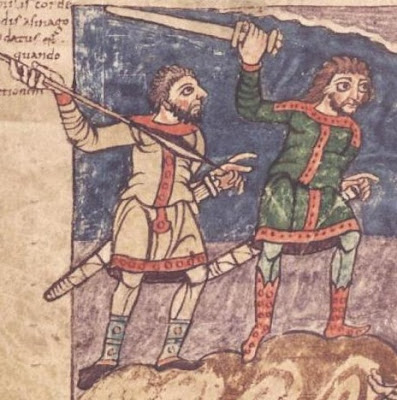Saul Bellow may have won the Nobel Prize, but I still feel a little ashamed of enjoying his books so much. It's like admitting that I love Mao's
Little Red Book, or
Twilight. Like most of Bellow's books,
Mr. Sammler's Planet oozes contempt for women. As a lifelong reader of Roman, medieval, and Renaissance texts, I don't find this particularly shocking, but sometimes it does make me queasy. Bellow oozes contempt in lots of other directions, too: toward weakness, toward frivolity, toward the desire for children, toward much of what passes for normal human life. Is it sinful of me to nonetheless enjoy his characters' highly intellectual grousing about the world?
Sammler, the main character in this book, is a Polish Jew living in Manhattan, a survivor of the Holocaust and veteran of partisan combat. In 1969 he is a man of about 70, living with his widowed niece, reasonably comfortable thanks to the generosity of a nephew who has become a wealthy obstetrician in Westchester County. His relatives all call him "Uncle Sammler" and treat him as a sort of oracle who carries with him their ties to the old country and their memories of Holocaust and resistance. He dislikes being treated this way and does not think himself much of a hero. He spends much of his time in the public library, reading Christian mystics of the later Middle Ages. What he dislikes about most other books is their insistence on explaining things. The modern age, he grumbles, has a mania for explanation. As if, he thinks, the world could be reduced to a tidy series of cause and effect propositions. This is a typical touch of Bellow's genius. Our age does have a mania for facile explanations, which pour from the lips of newsreaders, op-ed writers, politicians, pop psychologists, and just about everyone else. Why is the stock market up or down today? The expert at the business desk has an explanation, something to do with interest rates or unemployment reports or war near the oil fields. Why is it hard to be happy? You can pick your explanation from a whole shelf of books: your unloving mother, your low self-esteem, the capitalist system. Whatever the question, our age can supply the answer.
Because of who Sammler is, bigger questions loom in the background: why the Holocaust? Why World War II? Why Fascism and Communism? Sammler has no answers to these questions and avoids even raising them, but I had the sense that these are the things he most hates to hear explained. Some things just are, or can only be understood by somehow grasping the whole nature of the universe, as Meister Eckhardt tried to do.
To Sammler, what is most valuable about human life is our civilization, and the great error of the twentieth century was rejecting civilization and embracing barbarism. The Maoists and the Nazis, in their different ways, took this to the greatest extreme, but to Sammler the hippies and the Rastas and the apostles of sexual revolution are making the same mistake. Slavery was wrong, he says, and it is good that we are increasingly liberated from lives of unending toil; but, he adds, liberation is not working out very well for many of us. Freedom is increasingly wasted on lives of shallow consumption and loveless sex, and instead of toiling in the fields and the mines we toil in the wasteland of pointless boredom.
One scene in
Mr. Sammler's Planet made me think that there are many kinds of fantasy literature. Sammler meets an Indian biophysicist who is a consultant to the Apollo program, a very well-read man who lived through the 1947 riots in Calcutta and saw hundreds of people beaten to death in the streets. Starting from the question of whether it is worthwhile to go to the Moon, they embark on a far-ranging conversation about what is meaningful in life. Bellow renders this meeting as few other writers could, two men who have seen the worst of human nature and read the deepest thinkers trying and not really succeeding to put into words the wisdom they have acquired. It was a straight out intellectual fantasy, the sort of conversation all we would-be intellectuals wish we had, and I loved it.
Meanwhile, the women -- Sammler's niece and daughter -- are in the kitchen fixing lunch. Sammler sends his daughter to help because her attempts to display her body to the fascinating biophysicist disgust him and are interfering with the conversation. (Sammler's revulsion at the barbaric sexuality of the 60s is one of the constant motifs.) The daughter is crazy, and her insane acts drive much of what there is for a plot. The niece is a more appealing character. She is a smart woman who was a good wife to her deceased husband and takes reasonable care of Sammler. But her attempts at intellectual conversation take the form of working some mildly interesting topic from every possible angle until Sammler has to flee the apartment, missing the dead husband, who used to tell her to shut up whenever she started on one of these explorations. She is too fleshy -- one of Bellow's favorite words for women -- too earthy, too sexual to be a real intellectual, and she is more comfortable cooking for men than debating them.
There is nothing unrealistic about either of these women, and I suppose there is nothing inherently misognynistic about these portrayals. There are many women who would rather cook for men than debate them. With Bellow, though, there are never any women who can talk to his protagonists as equals. All his women are too emotional, too sexual, too fleshy to rise above everyday life to the intellectual heavens where his leading men reside.
If you can't set this aside and listen to what characters like Sammler, Augie March, and Herzog have to say, you shouldn't read Saul Bellow. I gather he has few female fans. But I am able to ignore this, and also the thick-headed conservatism and the snobbery, because Bellow wrote wonderfully and had a lot to say. His leading characters may all be versions of himself, but they are not quite the same. Sammler has the opinions of a man who grew up in Warsaw and London before 1930, who misses servants and the high culture of Bloomsbury between the wars. Augie March, in contrast, is a Chicago-born common man who has to claw his way through life. What they all have in common is a suspicion that the wonders of modern life are not really so wonderful, and a belief that things tested by time are worth more than novelties. Because Bellow was a brilliant man with a profound understanding of how individual human lives intersect with history, his characters' grumbling is full of insight. I enjoy the insights, the silky-smooth prose, and the characters enough to ignore the things I find offensive; if you think you could ignore them as well, and are interested in the sort of discussions I have described, you should read
Mr. Sammler's Planet.
 Among the wonderful products of Bronze Age civilization are the stone figurines of the Cyclades. These small Greek islands were rich in mineral resources -- copper, lead, obsidian, marble -- and they hosted a thriving civilization with widespread trading links. Yet their art looks like nothing else. The earliest figurines, dating to around 3200 BC, do resemble Neolithic art of Anatolia, but as the style developed it became more and more unique.
Among the wonderful products of Bronze Age civilization are the stone figurines of the Cyclades. These small Greek islands were rich in mineral resources -- copper, lead, obsidian, marble -- and they hosted a thriving civilization with widespread trading links. Yet their art looks like nothing else. The earliest figurines, dating to around 3200 BC, do resemble Neolithic art of Anatolia, but as the style developed it became more and more unique. The spare, modernist look of the statues is partly an artifact of time, since they were brightly painted. Most were made between 2800 and 2200 BC.
The spare, modernist look of the statues is partly an artifact of time, since they were brightly painted. Most were made between 2800 and 2200 BC. I have to say, though, that I have always wondered if some of the more elaborate pieces weren't modern fakes. Marble sculpture is all but impossible to date, and these pieces appealed so strongly to modernist tastes -- Freud was a big collector -- that there was a thriving trade in them throughout the early 20th century. Recent discoveries of harp players in good archaeological contexts, though, show that even if some pieces were made recently, they are copies of truly ancient works.
I have to say, though, that I have always wondered if some of the more elaborate pieces weren't modern fakes. Marble sculpture is all but impossible to date, and these pieces appealed so strongly to modernist tastes -- Freud was a big collector -- that there was a thriving trade in them throughout the early 20th century. Recent discoveries of harp players in good archaeological contexts, though, show that even if some pieces were made recently, they are copies of truly ancient works.























